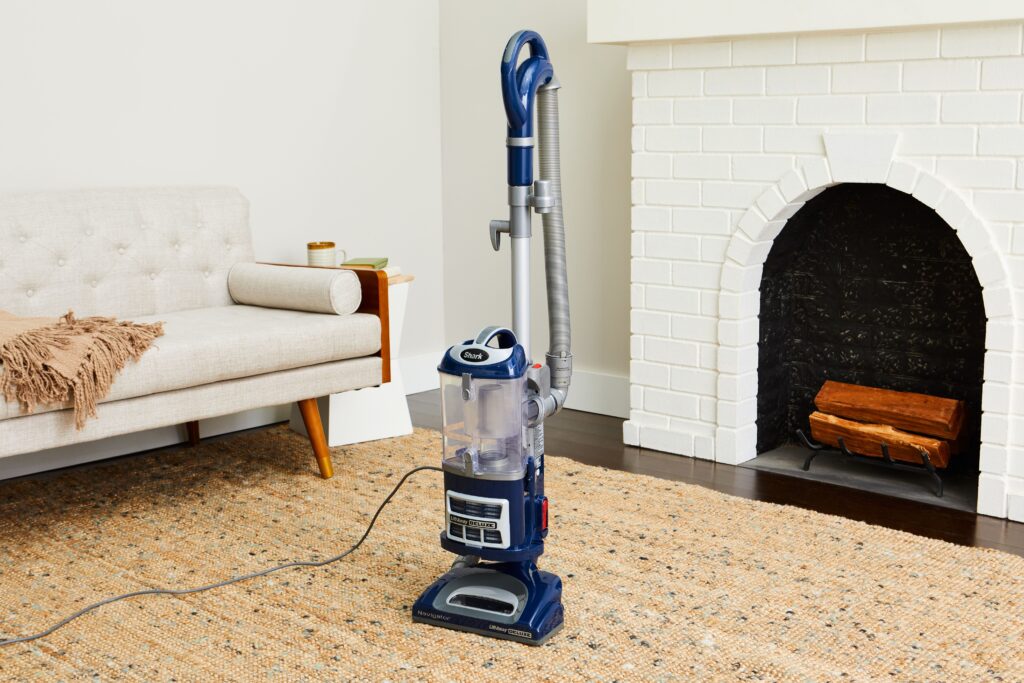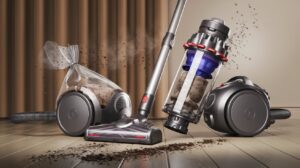Choosing the right vacuum cleaner can be challenging, especially when deciding between bagged vs.Bagless Vacuum Cleaners Both types come with unique advantages, making the choice highly dependent on household needs, budget, and maintenance preferences.
A bagged vacuum cleaner is known for its superior dust containment, making it an excellent option for allergy sufferers. However, the need for replacement bags adds to its long-term cost (bagged vs. bagless vacuum maintenance cost). On the other hand, a bagless vacuum cleaner eliminates the hassle of buying bags, offering a more eco-friendly and cost-effective solution. But is it the right choice for everyone?
This article will compare bagged vs. bagless vacuums for allergies, pet hair, and home use, evaluating their suction power, ease of cleaning, and overall performance. Whether searching for the best vacuum cleaner for pet hair and allergies or the most hygienic vacuum cleaner, this guide will help you make an informed decision.
Understanding Bagged and Bagless Vacuum Cleaners
When purchasing a new vacuum cleaner, one of the most common dilemmas is choosing between a bagged vs. bagless vacuum cleaner. While both serve the same purpose—keeping homes clean and dust-free—their mechanisms, maintenance, and overall performance vary significantly. The decision often comes down to personal preferences, cleaning needs, and budget.
A bagged vacuum cleaner relies on a disposable or reusable bag to collect dust and debris, making it a preferred option for those with allergies or asthma. Meanwhile, a bagless vacuum cleaner features a dustbin that can be emptied and reused, eliminating the need for replacement bags. But which one is truly the best for your home?
In this section, we’ll explore the key differences, benefits of using a bagged vacuum, the advantages of a bagless vacuum, and help you determine which type suits your lifestyle.
What is a Bagged Vacuum Cleaner?
A bagged vacuum cleaner uses a sealed bag to trap dirt, dust, and debris. Once full, the bag is removed and discarded (or emptied if reusable), making cleanup easy and hygienic. These vacuums have been around for decades and are still widely used in households, offices, and commercial spaces.
Benefits of Using a Bagged Vacuum
-
Better for Allergy Sufferers
One of the biggest advantages of a bagged vs. bagless vacuum for allergies is superior dust containment. The vacuum bag acts as a barrier, preventing dust particles from being released back into the air when emptied. This makes bagged vacuums the preferred choice for individuals with asthma or respiratory sensitivities. -
Higher Filtration Efficiency
Most bagged vacuums come equipped with HEPA filter vacuum cleaner bagged or bagless options, which capture 99.97% of allergens and fine dust particles. This ensures a healthier indoor environment. -
Less Frequent Emptying
Since vacuum bags can hold a significant amount of dirt, users do not need to empty them as frequently as bagless vacuums. This makes them convenient for larger homes and high-traffic areas. -
Hygienic Disposal
With bagged vacuums vs. bagless maintenance cost, the biggest trade-off is that users must buy replacement bags. However, the sealed disposal system prevents direct contact with dust, making cleanup less messy.
Drawbacks of Bagged Vacuums
- Ongoing Cost of Replacement Bags – The need to replace bags regularly can add up over time. Some consumers wonder, “Is a bagged vacuum worth the extra cost?”
- Reduced Suction as the Bag Fills – In some models, suction power decreases as the bag fills with debris.
- Less Eco-Friendly – Disposable vacuum bags contribute to landfill waste, making them less environmentally friendly than bagless models.
Top-Rated Bagged Vacuums 2025
Looking for the best bagged vacuum cleaner? Here are some top picks for 2025:
- Miele Complete C3 – Known for powerful suction and excellent filtration.
- Hoover WindTunnel Max – A budget-friendly choice with strong cleaning capabilities.
- Kenmore Elite 31150 – Highly rated for pet hair and allergen control.
What is a Bagless Vacuum Cleaner?
A bagless vacuum cleaner collects dirt in a dustbin or canister, eliminating the need for disposable bags. Instead of replacing bags, users empty the dustbin and clean the filter as needed. This design is favored for its cost-effectiveness and environmental benefits.
Benefits of Using a Bagless Vacuum
-
No Need for Replacement Bags
One of the biggest advantages is cost savings—users do not have to buy vacuum bags, making bagless vacuums more budget-friendly in the long run. -
Eco-Friendly Option
Since there are no disposable bags, a bagless vacuum cleaner generates less waste, making it a more sustainable choice. -
Easy to See When It’s Full
Many bagless models have transparent dustbins, allowing users to see when it’s time to empty them. This ensures optimal performance without second-guessing. -
Consistent Suction Power
Unlike bagged vacuums, where suction may decrease as the bag fills, bagless vacuums maintain strong suction throughout use. This is a major factor for those wondering, “Do bagless vacuums lose suction?”
Drawbacks of Bagless Vacuums
- Messier to Empty – Unlike bagged vacuum cleaners, emptying a dustbin can release dust into the air, which may not be ideal for allergy sufferers.
- Frequent Maintenance Required – Filters and dustbins must be cleaned regularly to maintain efficiency. Some users ask, “Are bagless vacuums harder to clean?”
- Can Be Less Hygienic – When emptying the dustbin, dirt and allergens can become airborne, making disposal less sanitary.
Top-Rated Bagless Vacuums 2025
If you’re considering the best bagless vacuum cleaner, here are some highly rated models:
- Dyson Ball Animal 2 – Excellent for pet hair and deep cleaning.
- Shark Navigator Lift-Away – A versatile and powerful option for carpets and hardwood floors.
- Bissell CleanView Swivel Pet – Affordable and great for pet owners.
Bagged vs. Bagless: Which One is Right for You?
Choosing between a bagged or bagless vacuum – which is better? depends on individual needs. If hygiene, superior filtration, and allergen control are top priorities, a bagged vacuum cleaner is the best choice. However, if cost savings, convenience, and eco-friendliness matter more, a bagless vacuum cleaner is the way to go.
For pet owners and allergy sufferers, experts often recommend bagged vacuums vs. bagless for pet hair and allergens due to their superior dust containment. On the other hand, those who prefer a hassle-free experience might find bagless vacuums easier to use and maintain.
Ultimately, the best vacuum cleaner for home use depends on cleaning habits, maintenance preferences, and budget. Understanding the pros and cons of each type ensures you make an informed decision.
Pros and Cons of Bagged vs. Bagless Vacuum Cleaners
When choosing between a bagged vs. bagless vacuum cleaner, understanding the advantages and drawbacks of each type is essential. Both options offer unique benefits, but their performance, maintenance requirements, and cost differ significantly.
A bagged vacuum cleaner is known for its superior dust containment, making it an ideal choice for allergy sufferers. However, the ongoing cost of replacement bags is a factor to consider. On the other hand, a bagless vacuum cleaner offers a more eco-friendly and cost-effective solution, but it requires frequent dustbin emptying and filter maintenance.
In this section, we will explore the pros and cons of bagged vacuum cleaners and the pros and cons of bagless vacuum cleaners to help determine which vacuum type is the best fit for different households.
Pros and Cons of Bagged Vacuum Cleaners
A bagged vacuum cleaner uses a sealed bag to collect dirt, debris, and allergens. This design is effective at trapping dust, making disposal cleaner and more hygienic.
Pros of Bagged Vacuum Cleaners
Better for Allergies and Asthma Sufferers
-
- One of the biggest advantages of a bagged vacuum vs. bagless for allergies is its ability to trap dust and allergens inside a disposable bag.
- Many bagged models include HEPA filter vacuum cleaner bagged or bagless options that remove 99.97% of allergens and fine particles, ensuring cleaner indoor air.
More Hygienic Dust Disposal
- With bagged vacuum cleaners, users do not have to worry about dust escaping when emptying the vacuum.
- This makes them an excellent choice for homes with asthma sufferers or people with respiratory conditions.
Less Frequent Emptying
- Bagged vacuums vs. bagless maintenance cost can sometimes be higher due to replacement bags, but they typically require less frequent emptying than bagless models.
- The large-capacity bags can hold significant amounts of dirt, making them ideal for deep cleaning and larger homes.
Superior Filtration and Suction Power
- Many high-end bagged vacuum cleaners offer better suction and airflow because the dust is contained in a separate bag rather than clogging the vacuum’s filters.
- For those wondering, “Which vacuum cleaner lasts longer—bagged or bagless?”, bagged vacuums tend to have a longer lifespan due to less strain on the motor.
Cons of Bagged Vacuum Cleaners
Ongoing Cost of Replacement Bags
-
- One common concern is, “Is a bagged vacuum worth the extra cost?”
- The need for replacement bags can add up over time, increasing the long-term cost of the vacuum.
Reduced Suction as the Bag Fills
- Some models may experience reduced suction power as the bag fills, leading to less efficient cleaning if the bag isn’t changed regularly.
Less Eco-Friendly Option
- Since vacuum bags are disposable, bagged vacuums contribute to landfill waste, making them a less sustainable choice compared to bagless vacuums.
- Some models may experience reduced suction power as the bag fills, leading to less efficient cleaning if the bag isn’t changed regularly.
Best Bagged Vacuum Cleaners 2025
- Miele Complete C3 – Best for allergy sufferers with high-efficiency filtration.
- Kenmore Elite 31150 – Top-rated for pet hair and carpets.
- Hoover WindTunnel Max – Budget-friendly with powerful suction.
Pros and Cons of Bagless Vacuum Cleaners
A bagless vacuum cleaner collects dirt and debris in a reusable dustbin instead of a disposable bag. Many homeowners prefer this type due to its cost-effectiveness and eco-friendly design.
Pros of Bagless Vacuum Cleaners
-
No Need for Replacement Bags
- One of the most significant benefits of a bagless vacuum cleaner is that it eliminates the need for disposable vacuum bags, saving money in the long run.
More Environmentally Friendly
- Since there are no bags to throw away, bagless vacuum cleaners reduce waste and are a greener option for eco-conscious consumers.
Easy to See When It’s Full
- Most bagless vacuums have transparent dustbins, allowing users to check when they need to be emptied.
- This feature helps maintain optimal performance without guesswork.
Consistent Suction Power
- Unlike bagged vacuums, where suction can decrease as the bag fills, bagless vacuums maintain strong suction throughout cleaning sessions.
- This answers the common question, “Do bagless vacuums lose suction?”, and the answer is generally no—provided the filters and dustbin are cleaned regularly.
- Since there are no bags to throw away, bagless vacuum cleaners reduce waste and are a greener option for eco-conscious consumers.
- One of the most significant benefits of a bagless vacuum cleaner is that it eliminates the need for disposable vacuum bags, saving money in the long run.
Cons of Bagless Vacuum Cleaners
Messy to Empty and Clean
-
- Emptying a bagless vacuum cleaner can be dusty and messy, as dirt can spill out when disposing of it.
- Those with allergies may find this aspect of bagless vacuums harder to clean and maintain.
Frequent Maintenance Required
- Filters in bagless vacuums need to be washed or replaced regularly to ensure consistent performance.
- This adds to the time and effort required for maintenance.
Less Hygienic than Bagged Vacuums
- Since dustbins are not sealed like vacuum bags, some fine particles can become airborne during emptying, which may not be ideal for those with asthma or severe allergies.
Best Bagless Vacuum Cleaners 2025
- Dyson Ball Animal 2 – Best for pet hair and deep cleaning.
- Shark Navigator Lift-Away – Great for carpets and hardwood floors.
- Bissell CleanView Swivel Pet – Budget-friendly and highly rated.
Bagged vs. Bagless – Which One Should You Choose?
The debate over bagged or bagless vacuum – which is better? comes down to personal preference and household needs.
For asthma sufferers and those with allergies, a bagged vacuum cleaner is often the better choice because it traps dust more effectively. However, if someone prefers a more cost-effective and eco-friendly option, a bagless vacuum cleaner might be the best fit.
- Best vacuum cleaner for pet hair and allergies – Bagged vacuums offer better filtration.
- Best vacuum cleaner for small apartments – Bagless vacuums are more compact and convenient.
- Best vacuum for carpets and hardwood floors – Both types have excellent models available.
Ultimately, the choice between bagged vs. bagless vacuums depends on how much maintenance one is willing to do and whether hygiene or convenience is a top priority.
Performance Comparison: Bagged vs. Bagless Vacuums
When it comes to household cleaning, performance is a key factor in choosing the best vacuum cleaner. While both bagged and bagless vacuum cleaners offer powerful cleaning capabilities, they differ in suction power, filtration efficiency, and overall cleaning performance. The right choice depends on specific cleaning needs, the type of flooring, and whether the user prioritizes ease of maintenance or superior dust containment.
In this section, we will compare the performance of bagged vs. bagless vacuum cleaners in three crucial areas: suction power, filtration and air quality, and cleaning efficiency on different surfaces. Understanding how each type performs can help users make an informed decision when purchasing a new vacuum cleaner.
Suction Power: Does Bagged or Bagless Perform Better?
One of the most common questions consumers ask is: “Do bagged vacuums have stronger suction than bagless?” Suction power plays a vital role in a vacuum cleaner’s effectiveness, ensuring thorough dirt and debris removal.
Suction Power in Bagged Vacuums
- Consistent Suction: Bagged vacuum cleaners often maintain strong suction because the dust and debris are contained within a separate bag, preventing clogs.
- Better Airflow: Since bagged vacuums have a sealed system, they tend to deliver more powerful suction over time.
- Reduced Performance When Bag Fills: A downside is that as the bag fills up, suction may decrease slightly, requiring timely bag replacement to maintain peak performance.
Suction Power in Bagless Vacuums
- Cyclonic Technology: Many bagless vacuum cleaners use cyclonic suction technology, which helps separate dirt from the airflow, maintaining consistent performance.
- Clogging Issues: While bagless models provide powerful suction, filters require frequent cleaning to prevent blockages. If the filter becomes clogged, suction power may decrease over time.
- Easier to Check Suction Efficiency: Since bagless vacuums have transparent dustbins, users can easily monitor dirt levels and clean the vacuum as needed.
Verdict: Bagged vacuums generally provide more consistent suction, especially for deep cleaning carpets. However, modern bagless vacuums with advanced filtration can offer comparable suction when properly maintained.
Filtration and Air Quality: Which Vacuum Keeps Air Cleaner?
Filtration is crucial for those with allergies or respiratory issues. The ability of a vacuum to trap dust, allergens, and fine particles determines how clean the indoor air remains after vacuuming.
Filtration in Bagged Vacuums
- Superior Dust Containment: The bagged vacuum cleaner is known for its hygienic dust disposal, as the bag seals in dust, allergens, and debris when removed.
- HEPA Filters: Many bagged vacuum cleaners include HEPA filter vacuum cleaner bagged or bagless options, which can capture 99.97% of microscopic allergens.
- Better for Allergy Sufferers: Since dust does not escape when disposing of a full vacuum bag, bagged vacuums are the best choice for allergy sufferers.
Filtration in Bagless Vacuums
- Washable Filters: Most bagless vacuums have washable and reusable filters, reducing long-term costs. However, they must be cleaned frequently to maintain effectiveness.
- Higher Risk of Dust Exposure: When emptying the dustbin, fine dust particles may become airborne, making bagless vacuums harder to clean for those with allergies.
- HEPA Options Available: Many best bagless vacuum cleaner models now offer HEPA filtration, but their effectiveness depends on how well the dustbin is sealed.
Verdict: Bagged vacuums provide better dust containment, making them ideal for allergy sufferers. However, bagless vacuums with high-quality HEPA filters can also offer excellent air quality with regular maintenance.
Cleaning Efficiency on Different Surfaces: Bagged vs. Bagless Performance
Vacuum performance can vary based on flooring type, such as carpets, hardwood floors, and tile surfaces. Let’s compare how bagged and bagless vacuums handle different cleaning tasks.
Bagged Vacuum Cleaner Performance
- Best for Deep Cleaning Carpets: The strong suction and sealed filtration of bagged vacuums make them highly effective for deep cleaning carpets and rugs.
- Handles Large Amounts of Dirt Well: Since bagged vacuums have large dust-holding capacities, they are ideal for homes with pets or high-traffic areas.
- Effective on Hard Floors: Many bagged models include attachments designed for hardwood floors and tiles, reducing dust scatter.
Bagless Vacuum Cleaner Performance
- Versatile and Lightweight: Most bagless vacuum cleaners are designed for easy maneuverability, making them ideal for small apartments and quick cleanups.
- Great for Hardwood Floors: Many best bagless vacuum cleaner models have specialized features, such as soft brush rolls, that work well on hardwood and tile floors.
- Not Ideal for Heavy-Duty Cleaning: While bagless vacuums are convenient, they may require frequent emptying when tackling pet hair, deep carpets, or large debris loads.
Verdict: Bagged vacuums excel at deep cleaning carpets and handling large amounts of dust, while bagless vacuums offer greater convenience and maneuverability, especially for hardwood and tile floors.
Which Vacuum Cleaner Performs Best?
The best vacuum cleaner for home use depends on cleaning needs, floor type, and maintenance preferences.
-
Choose a Bagged Vacuum Cleaner If:
You need better suction power and deep cleaning capabilities.
You want superior dust containment for allergies or asthma.
You prefer low-maintenance filtration with less frequent emptying. -
Choose a Bagless Vacuum Cleaner If:
You prefer a budget-friendly and eco-friendly vacuum.
You want a lightweight, maneuverable design for quick cleaning.
You don’t mind frequent filter cleaning and dustbin emptying.
Both bagged and bagless vacuum cleaners offer great performance, but the right choice depends on individual needs, home size, and cleaning habits. Whether you prioritize filtration, suction power, or ease of use, choosing the best vacuum ensures a cleaner and healthier home.
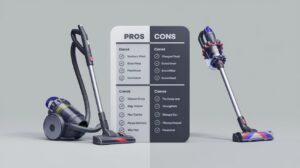
Best Options for Specific Needs: Bagged vs. Bagless Vacuums
When selecting the best vacuum cleaner for home use, it’s essential to consider individual cleaning needs, home size, flooring type, and health concerns. Bagged and bagless vacuum cleaners each offer unique advantages, making one type better suited for certain situations than the other.
For those with allergies, pet hair, or different flooring surfaces, choosing the right vacuum can significantly improve cleaning efficiency. In this section, we’ll explore the best bagged and bagless vacuum cleaners based on specific needs, including:
- Best for Allergy Sufferers
- Best for Pet Owners
- Best for Different Flooring Types
This guide will help determine the best vacuum cleaner bagged or bagless based on lifestyle and cleaning requirements.
Best Vacuum Cleaner for Allergy Sufferers
For individuals with allergies, asthma, or respiratory issues, a vacuum’s filtration system and dust containment ability are the most critical factors.
Why Bagged Vacuums Are Best for Allergies
- Sealed Dust Containment: Bagged vacuums use self-sealing bags, preventing allergens from escaping when replacing the bag.
- HEPA Filtration: Many bagged vacuum cleaners feature HEPA filter vacuum cleaner bagged or bagless technology, capturing 99.97% of allergens, dust, and fine particles.
- Minimal Dust Exposure: Unlike bagless vacuums, which require emptying an open dustbin, bagged vacuums offer a hygienic disposal method.
Best Bagged Vacuum Cleaner for Allergies
Miele Complete C3 – Features a sealed filtration system with HEPA bags, ensuring zero dust leakage.
Kenmore Elite 31150 – Equipped with a powerful motor and HEPA filter, making it ideal for homes with allergy sufferers.
Can a Bagless Vacuum Work for Allergies?
- While bagless vacuums are not always the best for allergies, some models feature sealed HEPA filters to reduce airborne dust.
- However, emptying the dustbin can release allergens, which might not be ideal for those highly sensitive to dust.
Best Bagless Vacuum Cleaner for Allergies
Dyson Ball Animal 2 – A bagless vacuum with HEPA filtration, strong suction, and cyclonic technology for cleaner air.
Shark Navigator Lift-Away – Features anti-allergen seal technology and HEPA filtration, making it one of the best bagless vacuum cleaners for allergies.
Best Vacuum Cleaner for Pet Owners
Pet hair, dander, and dirt can quickly accumulate in homes with pets, making it crucial to choose a vacuum that efficiently handles fur on different surfaces.
Why Bagged Vacuums Are Good for Pet Owners
- Better Odor Control: Many bagged vacuum cleaners come with activated carbon filters that help trap pet odors.
- Stronger Suction Power: Bagged vacuums tend to maintain suction better over time, especially when tackling pet hair on carpets.
Best Bagged Vacuum Cleaner for Pet Hair
Sebo Airbelt D4 – Known for its high-powered suction, HEPA filtration, and large bag capacity for handling pet fur.
Hoover WindTunnel Max – A budget-friendly option with multi-floor pet hair removal capabilities.
Are Bagless Vacuums Good for Pet Hair?
- Bagless vacuums with strong suction and specialized pet hair attachments can effectively clean fur from carpets, upholstery, and hardwood floors.
- However, emptying a bagless vacuum can expose users to pet dander and allergens.
Best Bagless Vacuum Cleaner for Pet Hair
Dyson V15 Detect – A powerful cordless bagless vacuum with laser technology that highlights pet hair and fine dust.
Bissell CleanView Swivel Pet – A budget-friendly bagless vacuum with a specialized pet hair brush roll.
Best Vacuum Cleaner for Different Flooring Types
Vacuum cleaners perform differently on hardwood floors, carpets, and tile surfaces. Choosing the right model depends on the primary flooring type in the home.
Best Bagged Vacuum Cleaner for Carpets
- Deep Carpet Cleaning: Bagged vacuums tend to offer stronger suction and deep-cleaning power, making them ideal for thick carpets.
- More Efficient Dust Containment: Carpets trap a lot of dust and debris, and a bagged vacuum cleaner prevents fine dust from escaping.
Top Bagged Vacuums for Carpets
Miele Dynamic U1 – Excellent for deep-pile carpets with adjustable suction power.
Riccar Radiance R40P – A high-end bagged vacuum with premium carpet cleaning capabilities.
Best Bagless Vacuum Cleaner for Hardwood Floors
- Easier to Maneuver: Bagless vacuums are usually lightweight and easier to maneuver around furniture.
- Specialized Floor Attachments: Many bagless models come with soft brush rolls to prevent scratching hardwood floors.
Top Bagless Vacuums for Hardwood Floors
Shark Vertex UltraLight – A powerful bagless vacuum designed specifically for hardwood floors.
Dyson Omni-Glide – A compact bagless stick vacuum with a soft roller head for gentle hardwood cleaning.
Best Vacuum Cleaner for Multi-Surface Cleaning
- Bagged and bagless vacuums can both work well for homes with mixed flooring.
- A vacuum with adjustable suction and floor height settings is ideal for switching between carpets, hardwood floors, and tiles.
Best Multi-Surface Vacuum
Shark APEX DuoClean – A bagless vacuum with dual brush rolls, suitable for both carpets and hardwood.
Kenmore BU4022 – A bagged vacuum with height-adjustable suction for different flooring types.
Choosing the Best Vacuum Cleaner for Your Needs
The choice between a bagged vs. bagless vacuum cleaner depends on household requirements and cleaning preferences.
- Best for Allergy Sufferers – Bagged vacuums with HEPA filtration offer better dust containment.
- Best for Pet Hair – Both bagged and bagless vacuums with strong suction and pet hair attachments work well.
- Best for Carpets – Bagged vacuums provide stronger suction and better deep cleaning.
- Best for Hardwood Floors – Bagless vacuums with soft brush rolls prevent scratches.
By evaluating personal cleaning needs and maintenance preferences, homeowners can select the best vacuum cleaner bagged or bagless for a cleaner and healthier home.
Cost & Maintenance Considerations: Bagged vs. Bagless Vacuums
When choosing between a bagged vs. bagless vacuum cleaner, one of the most crucial factors to consider is the cost and maintenance associated with each type. While the initial price of a vacuum plays a role in decision-making, long-term costs such as filter replacements, bag purchases, and durability should also be factored in.
Both bagged vacuum cleaners and bagless vacuum cleaners come with their own upkeep requirements and hidden costs that can impact budget-conscious consumers. In this section, we will compare the cost-effectiveness, maintenance needs, and long-term expenses of each type to help determine the best vacuum cleaner for home use based on financial and maintenance preferences.
Key Topics Covered:
Initial Purchase Cost
Ongoing Maintenance Expenses
Durability & Lifespan
Initial Purchase Cost: Bagged vs. Bagless Vacuum Cleaners
The first cost consideration when buying a vacuum cleaner is its upfront price. Prices can vary widely based on brand, features, suction power, and filtration system.
Are Bagged Vacuums More Expensive?
- Higher Initial Cost: Generally, bagged vacuums are slightly more expensive than bagless vacuum cleaners, especially high-end models with advanced HEPA filtration.
- Premium Brands Charge More: Brands like Miele, SEBO, and Kenmore tend to have higher initial costs due to quality materials and strong suction power.
Top Affordable Bagged Vacuums
Hoover WindTunnel Max – Offers strong suction and HEPA filtration at a budget-friendly price.
Eureka Mighty Mite – A compact bagged vacuum with a low initial cost and powerful motor.
Are Bagless Vacuums Cheaper?
- Lower Initial Cost: Many bagless vacuum cleaners are priced more affordably, making them a budget-friendly option for homeowners.
- High-Tech Features at Lower Prices: Some bagless models, like Dyson and Shark, incorporate advanced cyclonic suction technology at competitive prices.
Top Affordable Bagless Vacuums
Bissell CleanView Swivel Pet – A cost-effective bagless vacuum with multi-surface cleaning capabilities.
Shark Navigator Lift-Away – Offers HEPA filtration and powerful suction at a mid-range price.Verdict: If initial price is a deciding factor, bagless vacuum cleaners tend to be cheaper upfront. However, bagged vacuums may offer better longevity, balancing out the cost over time.
Ongoing Maintenance Expenses
While bagged and bagless vacuums both require regular maintenance, the frequency and cost of upkeep vary between the two.
Ongoing Costs of Bagged Vacuums
- Bag Replacements: One of the primary ongoing costs of a bagged vacuum cleaner is purchasing replacement vacuum bags. Depending on the brand, bags can cost between $10–$40 per pack.
- HEPA Filter Replacements: Some bagged vacuum cleaners come with non-washable HEPA filters that must be replaced every 6–12 months.
How to Reduce Maintenance Costs?
Choose a model with high-capacity bags to reduce the frequency of bag changes.
Opt for a vacuum with reusable HEPA filters to minimize expenses.
Ongoing Costs of Bagless Vacuums
- Filter Cleaning & Replacement: Since bagless vacuums don’t require bags, they rely on HEPA or foam filters, which need frequent cleaning and replacement.
- Frequent Dustbin Emptying: The dust collection bin in a bagless vacuum cleaner must be emptied and cleaned regularly to maintain suction performance.
How to Reduce Maintenance Costs?
Choose a bagless model with a washable HEPA filter to save money.
Regularly clean the dustbin and filter to avoid clogging and maintain strong suction.
Verdict: Bagged vacuums have higher recurring costs due to bag replacements, while bagless vacuums require more frequent filter cleaning and occasional replacements. The choice depends on whether you prefer long-term convenience or lower upfront expenses.
Durability & Lifespan: Which Vacuum Lasts Longer?
The longevity of a vacuum cleaner depends on build quality, maintenance habits, and frequency of use.
Lifespan of Bagged Vacuums
- More Durable Components: Bagged vacuum cleaners tend to have stronger motors and better dust containment, reducing wear and tear.
- Less Exposure to Clogs: Since dust and debris are contained in a sealed bag, there is less chance of clogging and motor damage.
- Longer Lifespan: On average, bagged vacuums last 8–12 years with proper maintenance.
Long-Lasting Bagged Vacuums
Miele Complete C3 – Known for high durability and long-lasting performance.
Sebo Airbelt D4 – Features a powerful motor and superior filtration system.
Lifespan of Bagless Vacuums
- More Frequent Maintenance Required: Bagless vacuums experience more dust buildup, which can impact motor performance over time.
- Higher Risk of Filter Blockages: Since dust accumulates in the dustbin and filter, frequent cleaning is required to maintain suction power.
- Shorter Lifespan: Bagless vacuum cleaners typically last 5–8 years, depending on the brand and usage frequency.
Long-Lasting Bagless Vacuums
Dyson Ball Animal 2 – A high-performance bagless vacuum with strong suction and a washable HEPA filter.
Shark APEX DuoClean – Offers advanced filtration and a powerful motor, extending its lifespan.
Verdict: Bagged vacuums generally last longer than bagless vacuums, making them a better long-term investment for those seeking durability.
Which Vacuum is More Cost-Effective?
When weighing cost and maintenance considerations, both bagged and bagless vacuum cleaners have their advantages:
Choose a Bagged Vacuum If:
- You prioritize hygienic dust disposal.
- You want a vacuum with a longer lifespan.
- You don’t mind spending on replacement bags for better filtration.
Choose a Bagless Vacuum If:
- You prefer lower upfront costs.
- You don’t want to buy replacement bags regularly.
- You’re comfortable with frequent filter cleaning and dustbin emptying.
Ultimately, both types of vacuums offer excellent cleaning performance, and the decision should be based on budget, convenience, and long-term maintenance preferences.
Final Verdict: Which One Should You Buy?
After weighing the pros and cons of bagged vs. bagless vacuum cleaners, the decision ultimately depends on your specific cleaning needs, budget, and lifestyle preferences. Both bagged vacuum cleaners and bagless vacuum cleaners offer unique benefits, but choosing the best vacuum cleaner for home use requires careful consideration of filtration efficiency, convenience, cost, and maintenance.
This final section will break down the decision-making process by evaluating who should choose a bagged vacuum, who should opt for a bagless model, and key buying factors to keep in mind.
Who Should Choose a Bagged Vacuum Cleaner?
Bagged vacuum cleaners are ideal for those who prioritize hygienic dust disposal, superior filtration, and low-maintenance operation. These models work best for:
Allergy Sufferers & Homes with Pets
HEPA Filtration & Allergen Control: Most bagged vacuums come with sealed filtration systems that trap dust, pollen, and pet dander, making them the best vacuum cleaner for allergies.
Hygienic Dust Disposal: Unlike bagless models, where dust is released into the air when emptied, bagged vacuums keep allergens sealed within disposable bags.
Low-Maintenance Users & Large Households
Less Frequent Emptying: Bagged vacuum cleaners generally have larger dust storage capacity, requiring fewer bag changes.
Less Filter Cleaning Required: Since bags act as a primary filter, there is less need for frequent maintenance and filter replacements.
Best Bagged Vacuum Cleaners to Buy
Miele Complete C3 – Offers powerful suction, a HEPA filtration system, and durable bags.
Sebo Airbelt D4 – Known for superior allergen control and strong performance on carpets.
Kenmore Elite 31150 – A budget-friendly bagged vacuum with powerful suction and pet hair removal capabilities.
Verdict: If you have allergies, pets, or prefer a hassle-free cleaning experience, a bagged vacuum cleaner is the best choice.
Who Should Choose a Bagless Vacuum Cleaner?
Bagless vacuum cleaners are popular among those who prefer cost-effective and eco-friendly cleaning solutions. They work best for:
Budget-Conscious Consumers
No Recurring Cost on Bags: Bagless vacuums eliminate the need for replacement bags, making them a cost-effective option.
Washable Filters Reduce Expenses: Many models feature washable HEPA filters, further cutting maintenance costs.
Eco-Friendly & Tech-Savvy Users
Less Waste Generation: Since no disposable bags are used, bagless vacuum cleaners are a more sustainable choice.
Transparent Dustbin for Easy Monitoring: The clear dust canister allows users to see when it’s time to empty the vacuum.
Best Bagless Vacuum Cleaners to Buy
Dyson Ball Animal 2 – A high-performance bagless vacuum with powerful suction and HEPA filtration.
Shark Navigator Lift-Away – Offers versatile cleaning, strong suction, and an easy-to-empty dustbin.
Bissell CleanView Swivel Pet – A budget-friendly bagless vacuum cleaner perfect for pet owners.
Verdict: If you’re looking for a budget-friendly, environmentally friendly, and easy-to-use vacuum, a bagless vacuum cleaner is the better choice.
Key Factors to Consider Before Buying
Before making a final decision between a bagged vs. bagless vacuum cleaner, consider the following key factors:
Suction Power & Cleaning Efficiency
- Both bagged and bagless vacuums offer strong suction power, but bagged vacuums tend to maintain suction longer due to less dust clogging.
- Bagless vacuums with cyclonic technology (e.g., Dyson models) provide consistent suction, even as the dustbin fills.
Filtration System & Allergen Control
- If air quality is a concern, a bagged vacuum cleaner with a HEPA filter is the better option.
- Bagless vacuums also have HEPA filters, but they require regular cleaning and maintenance to maintain efficiency.
Maintenance & Long-Term Costs
- Bagged vacuums require ongoing purchases of vacuum bags, which can add up over time.
- Bagless vacuums eliminate bag costs but need frequent filter cleaning or replacements.
Verdict: If you want hassle-free dust disposal and better filtration, go for a bagged vacuum. If you prioritize cost savings and convenience, choose a bagless model.
Which One is the Best Vacuum Cleaner for You?
Choosing between a bagged vs. bagless vacuum cleaner depends on your personal preferences, cleaning habits, and budget.
Choose a Bagged Vacuum If:
- You need better air filtration for allergies or asthma.
- You want hygienic and sealed dust disposal.
- You prefer low-maintenance vacuuming with fewer filter cleanings.
Choose a Bagless Vacuum If:
- You want a cost-effective vacuum without ongoing bag replacements.
- You prefer seeing the collected dirt in a clear dustbin.
- You are comfortable with frequent filter cleaning and maintenance.
Overall Verdict:
Both bagged and bagless vacuums have their strengths, and the best vacuum cleaner for home use depends on your specific cleaning needs. If filtration and hygiene are top priorities, go with a bagged vacuum cleaner. If you prefer a more affordable and eco-friendly option, a bagless vacuum cleaner is the way to go.
Frequently Asked Questions (FAQs) on Bagged vs. Bagless Vacuum Cleaners
When choosing between bagged and bagless vacuum cleaners, many homeowners have questions about performance, maintenance, and long-term costs. This FAQ section addresses the most common concerns to help make an informed decision.
Which is better: a bagged or bagless vacuum cleaner?
The best vacuum cleaner depends on individual needs. Bagged vacuums are better for allergy sufferers and those who prefer hygienic dust disposal. Bagless vacuums are ideal for those who want a cost-effective and eco-friendly option without purchasing replacement bags.
Are bagged vacuum cleaners better for allergies?
Yes! Bagged vacuum cleaners with HEPA filters offer superior filtration efficiency, trapping up to 99.97% of dust, pollen, and allergens. The sealed bag design prevents particles from escaping, making them the best vacuum cleaners for allergies.
Do bagless vacuums lose suction power over time?
Bagless vacuums maintain consistent suction power when regularly cleaned. However, clogged filters or full dustbins can reduce efficiency. Cyclonic bagless vacuums (e.g., Dyson models) use advanced airflow technology to sustain performance.
Which vacuum cleaner is more cost-effective in the long run?
Bagless vacuums eliminate the recurring cost of vacuum bags, making them a more budget-friendly option. However, they may require filter replacements, which can add to maintenance costs. Bagged vacuums require ongoing bag replacements but generally have longer-lasting filters.
Do bagless vacuums require more maintenance?
Yes, bagless vacuum cleaners need frequent filter cleaning and dustbin emptying to maintain performance. If not cleaned regularly, filters can clog with fine dust, reducing suction efficiency. Bagged vacuums, on the other hand, require less frequent maintenance.
Can bagged vacuums be more hygienic?
Absolutely! Bagged vacuums provide a sealed dust disposal system, preventing dust and allergens from being released back into the air. This makes them ideal for asthma sufferers, pet owners, and people with dust sensitivities.
Do bagless vacuum cleaners have HEPA filters?
Many bagless vacuum cleaners come with HEPA filters, which help trap fine particles. However, these filters must be cleaned or replaced regularly to maintain their filtration efficiency.
Are bagless vacuums more environmentally friendly?
Yes! Bagless vacuums reduce waste generation by eliminating the need for disposable bags. However, they require filter replacements, which can still contribute to waste.
Which type of vacuum is better for pet hair removal?
Both bagged and bagless vacuum cleaners can be effective for pet hair removal. However:
Bagged vacuums with strong suction and HEPA filters are excellent for capturing pet dander and allergens.
Bagless vacuums with powerful brush rolls (like the Dyson Ball Animal 2 or Shark Navigator) are great for removing pet hair from carpets and upholstery.
How often should vacuum cleaner filters be replaced?
- Bagged vacuums: Filters typically last longer since dust bags act as a pre-filter, reducing the amount of debris reaching the HEPA filter.
- Bagless vacuums: Filters need to be cleaned or replaced every 3 to 6 months, depending on usage.
Are bagless vacuums harder to empty?
Yes, bagless vacuums can be messier to empty, as dust and allergens may escape into the air. If you prefer hygienic dust disposal, a bagged vacuum cleaner is the better choice.
Do bagged vacuums work better on carpets?
Yes! Bagged vacuum cleaners often have stronger suction power and deeper carpet penetration, making them ideal for thick carpets and rugs. However, high-end bagless models (e.g., Dyson and Shark vacuums) also perform well on carpets.
Which vacuum cleaner is best for hardwood floors?
Bagged vacuums with adjustable suction and soft bristle attachments are great for hardwood floors.
Bagless vacuums with multi-surface cleaning modes (like the Shark Navigator Lift-Away) work well on bare floors.
Do bagged vacuums last longer than bagless ones?
Yes, bagged vacuum cleaners tend to have a longer lifespan since dust is contained within the bag, reducing wear and tear on the motor and filters. Bagless vacuums may require more frequent maintenance to prolong their lifespan.
What is the best vacuum cleaner for home use?
The best vacuum cleaner for home use depends on personal preferences and cleaning needs:
Best for Allergies: Miele Complete C3 (Bagged)
Best for Pet Owners: Dyson Ball Animal 2 (Bagless)
Best Budget Option: Bissell CleanView Swivel (Bagless)
Best for Carpets: Kenmore Elite 31150 (Bagged)
Making the Right Choice
Choosing between a bagged vs. bagless vacuum cleaner comes down to your cleaning needs, budget, and lifestyle preferences. If you prioritize hygiene and allergen control, a bagged vacuum cleaner is the better option. However, if you prefer an eco-friendly and cost-effective vacuum, a bagless model is a great choice.
Still unsure? Compare the best vacuum cleaner models in both categories to find the one that suits your home best! 🚀
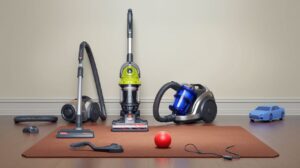
Conclusion: Choosing the Right Vacuum Cleaner for Your Needs
When comparing bagged vs. bagless vacuum cleaners, the best choice depends on individual cleaning needs, budget, and personal preferences. Both types offer unique advantages, making it essential to weigh the pros and cons before making a purchase.
Bagged vacuums are ideal for those who prioritize hygienic dust disposal, superior filtration, and allergen control. With sealed dust bags and HEPA filters, they effectively trap dust, pollen, and pet dander, making them the best vacuum cleaners for allergies. However, they come with the added cost of replacement vacuum bags.
On the other hand, bagless vacuum cleaners provide cost savings, eco-friendly operation, and convenience. They eliminate the need for vacuum bags, reducing ongoing expenses. Many cyclonic bagless vacuums maintain consistent suction power, but they require frequent filter maintenance to ensure peak performance.
Ultimately, choosing between bagged and bagless vacuum cleaners comes down to personal preference and lifestyle. For households with pets, high-suction bagless models work well for removing pet hair. Those with allergies or asthma may benefit from the sealed dust disposal of bagged vacuums.
Before making a final decision, consider factors like cost, maintenance, and performance on different surfaces. Investing in the best vacuum cleaner ensures a cleaner home and better air quality.
